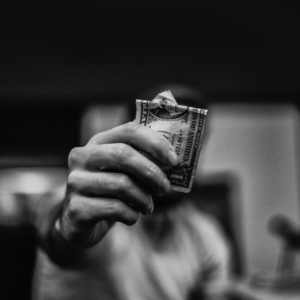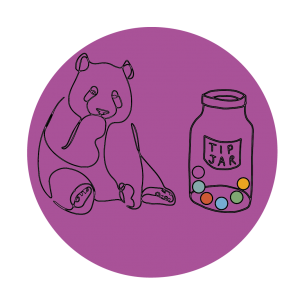What is Universal Basic Income (UBI)?
Paris. February, 1846. A man stops to watch the police drag away a young, painfully thin boy in rags. Under the boy’s arm: a loaf of bread. Not the Parisian baguette of today; French bread in the nineteenth century, at least the commoner’s fare, was black, hard, and heavy, with a grey mealy interior. Even that, for most, was too expensive.
Victor Hugo went home and began writing these famous lines:
‘A very hard winter came. Jean had no work. The family had no bread. No bread literally. Seven children!’
The start of Les Misérables.
Hugo would dedicate his life to fighting poverty. It was not just a moral issue, he claimed, but a practical one as well. His argument was not new; three centuries before him, philosopher Thomas More wrote:
‘No penalty on earth will stop people from stealing, if it’s their only way of getting food. […] it would be far more to the point to provide everyone with some means of livelihood, so that nobody’s under the frightful necessity of becoming, first a thief, and then a corpse.’
– Thomas More, Utopia
With that, he was hinting at the first scheme for a Universal Basic Income.
So what is UBI (Universal Basic Income)?
UBI is cash,
given out periodically,
unconditionally,
to every individual,
in an entire society.
The premise: that all citizens of a country or area, regardless of income, resources, or employment, should have enough to guarantee their basic survival needs.
The purpose: to prevent or reduce poverty and inequality. (https://whatis.techtarget.com/definition/universal-basic-income-UBI)
UBI is not meant
to punish the rich,
reward the lazy,
or stifle growth.
It is meant to empower all members of society, even those with no pay check:
Caregivers
Stay at home mothers and fathers
Artists, writers, musicians
Entrepreneurs
An opportunity, available to whoever wants it, for social mobility.
More’s friend, Johannes Ludovicus Vives, was the first to translate this idea into a proposal that he would then submit to the mayor of Bruges in 1526. Ever since, philosophers, economists, and governments have been experimenting with this system.
But does UBI work?
As of 2018, seven countries in the world are conducting studies on basic income: Finland, Kenya, the Netherlands, Ontario, Scotland, Uganda, and the United States. Let us take a look at one of these:
The Finnish Basic Income Experiment
The experiment has been running since January 2017. Under it, 2,000 randomly chosen people between the ages of 25 and 58 have been receiving a partial basic income of €560 per month.
The two-year trial is testing whether this system will increase the recipients’ incentive to find and maintain employment. It may also answer a number of other questions. For instance:
Does it respond better to changes in people’s working lives?
Does it simplify social security?
Does it reduce bureaucracy?
Stay tuned for the verdict:
Experiment end date: December 2018.
In an espresso cup,
There as many pros to cons to basic income, and even more forms it could take. It may not be the only, or right answer, but it does address a problem:
Poverty is real.
Inequality is rising.
Economic and social mobility are not.
Since More and Hugo, here are just some names of those who have advocated for UBI:
Thomas Jefferson, Thomas Paine, Abraham Lincoln, Bertrand Russell, Franklin Roosevelt, Pete Drucker, Margaret Mead, Milton Friedman, John Kenneth Galbraith, Martin Luther King Jr., Marshall McLuhan, Elon Musk, Sam Altman, Chris Hughes and Mark Zuckerberg.
Their logic is simple: every human should have the right to eat. And sleep under a roof, and not feel cold or unsafe, and face the next morning with dignity.










